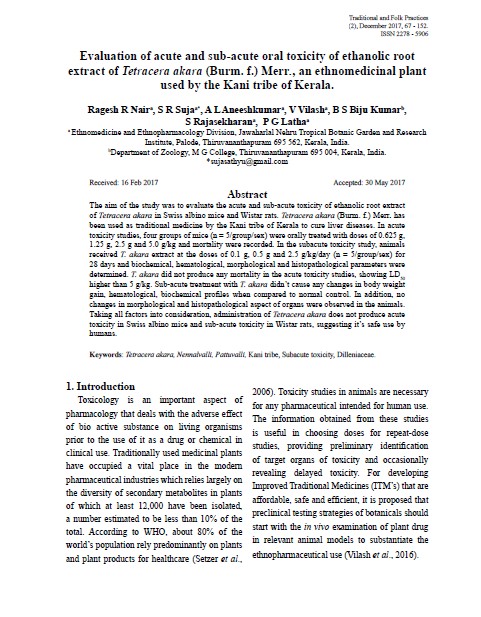Evaluation of acute and sub-acute oral toxicity of ethanolic root extract of Tetracera akara (Burm. f.) Merr., an ethnomedicinal plant used by the Kani tribe of Kerala.
Keywords:
Tetracera akara, Nennalvalli, Pattuvalli, Kani tribe, Subacute toxicity, DilleniaceaeAbstract
The aim of the study was to evaluate the acute and sub-acute toxicity of ethanolic root extract of Tetracera akara in Swiss albino mice and Wistar rats. Tetracera akara (Burm. f.) Merr. has been used as traditional medicine by the Kani tribe of Kerala to cure liver diseases. In acute toxicity studies, four groups of mice (n = 5/group/sex) were orally treated with doses of 0.625 g, 1.25 g, 2.5 g and 5.0 g/kg and mortality were recorded. In the subacute toxicity study, animals received T. akara extract at the doses of 0.1 g, 0.5 g and 2.5 g/kg/day (n = 5/group/sex) for 28 days and biochemical, hematological, morphological and histopathological parameters were determined. T. akara did not produce any mortality in the acute toxicity studies, showing LD50 higher than 5 g/kg. Sub-acute treatment with T. akara didn’t cause any changes in body weight gain, hematological, biochemical profiles when compared to normal control. In addition, no changes in morphological and histopathological aspect of organs were observed in the animals. Taking all factors into consideration, administration of Tetracera akara does not produce acute toxicity in Swiss albino mice and sub-acute toxicity in Wistar rats, suggesting it’s safe use by humans.


